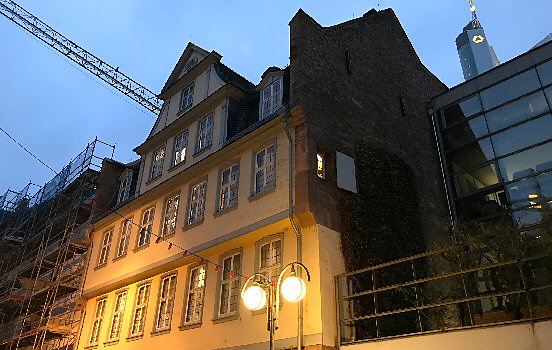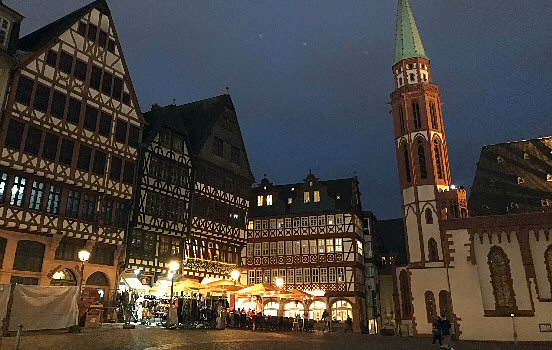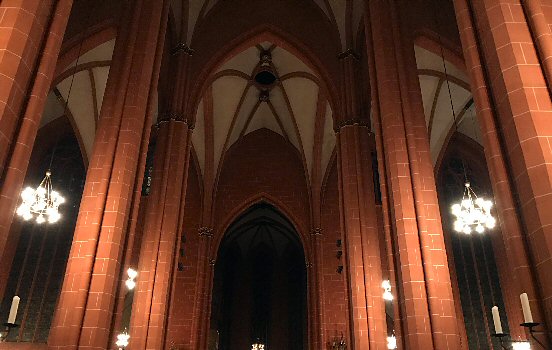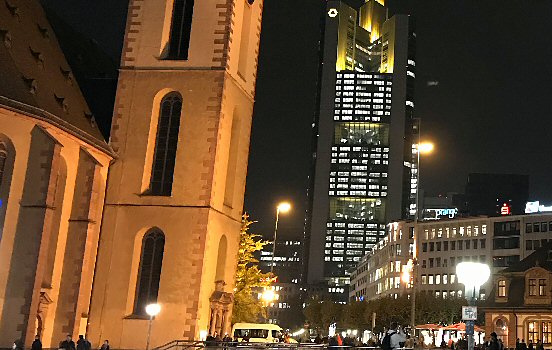Frankfurt is a city that wears its glass towers like a tailored suit. Expensive, efficient and utterly devoid of warmth. Not ugly, not beautiful. Just precise.
This is the engine room of the eurozone. A place where deals are made, bonuses wired, and cappuccinos cost more than your conscience.
It’s a cold night in Frankfurt. I walk along silent streets where Christmas displays in the shop windows provides a bit of light and comfort, gazing up towards the facade of the house where Goethe was born in 1749.
 Goethe house.
Goethe house.
The Römerberg square is almost deserted. The beautiful Altes Rathaus somehow looks smaller when there is not a crowd of people in front of it. There is not even a line of people squeezing the fish handle on the small Minerva well. Instead of a jolly Christmas market, it feels like a vacuum. A postcard polished to sterility.
The silence continues inside the solemn Alte Nikolaikirche in the end of the square. It’s the day before Luther’s birthday, so he was the obvious poster boy in there.
 Römerberg square.
Römerberg square.
Moving east along the stern pillars of Bendergasse to arrive at the imposing cathedral, the red exterior beautifully lit with the Domturm shining brightly into the night as the eye of Sauron. I try in vain to find the skullcap of St. Bartholomew in the chapel, but give up and continue north along small alleys.
 Cathedral interior.
Cathedral interior.
I rest my weary feet next to the weird statue where David sits on the head of Goliat, having a look at the square. The old bricks of the church as well as the baroque Guard House stands in stark contrast to the shining skyscrapers behind them. A combination of old and new, as things should be.
 Old meets new at Hauptwache.
Old meets new at Hauptwache.
Frankfurt doesn’t seduce. It doesn’t dance. It clocks in, counts the money and goes home. But if you listen hard enough, sometimes the silence says more than the song.
Related posts

Comments
No comments yet.
Leave a reply